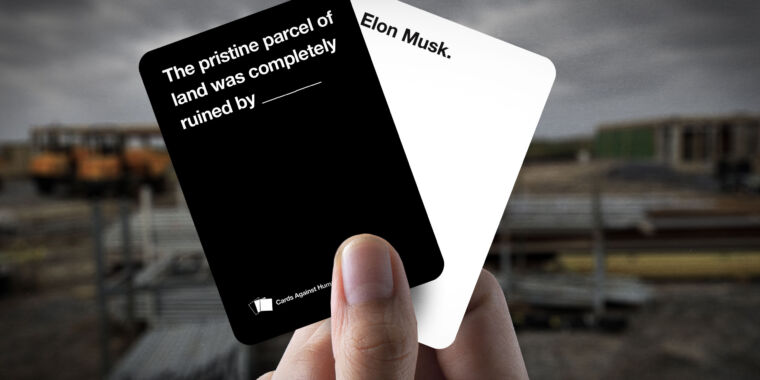- 1 Post
- 101 Comments

 5·28 days ago
5·28 days agoI think I prefer eXcretions

 52·1 month ago
52·1 month agoBasically, RSS as you said, is a one way street. There is no feedback. It’s not so much communication, but broadcasting.

 91·1 month ago
91·1 month agoThat would be the way to match the rhetoric.

 61·1 month ago
61·1 month agoIt doesn’t help any one else unfortunately.
But I subscribed to Google Play Music All Access during the original promo in 2013. Part of $7.99 promo deal way back then, was that it was a Lifetime Subscription. Even after raising the price on all the 2014 YouTube Red promo users at the beginning of 2024, I’m still locked in at $7.99. I’ve de-Googled nearly everything else, but I’ll hold on to that subscription till I die, or YouTube does.

 9·1 month ago
9·1 month agoIf there aren’t workers, there is no need for unions.
But that doesn’t happen anyway.
UBI doesn’t replace work. People still work. Pilot programs and tests show, people might work less overtime, or call out when sick more, so they can go to a doctor, spend more time home with a new baby, and stay in school longer gaining higher degrees. But they don’t quit their jobs. So there will still be plenty of workers to join unions.

 10·1 month ago
10·1 month agoHow does it take leverage from unions?
It would effectively be a permanent strike fund.
Wouldn’t that help unions?It’s also not so much “taking” power, as it’s not giving power you feel is your right.
Which, is the same kind of thinking that let’s copyright holders claim every count of piracy is theft of money they never actually had.

 38·1 month ago
38·1 month agoWhat about copyrighted code?
Like for instance, GPU drivers?

 55·2 months ago
55·2 months agoAn LLM database builder.

 342·3 months ago
342·3 months agoI’m not sure what you’re talking about.
None of the major Fediverse projects have real monetization.
Why single out PeerTube?Why would you expect monetization at this point?
Do you think it should be monetized, or are you just surprised it hasn’t been?
What form of monetization are you imagining?

 58·3 months ago
58·3 months agoYou’re not alone.
On a good large screen, 1080p is a noticeable upgrade from 720p.
But the distance you’d have to sit at, to get much out of 2160p over 1080p, is just way too close.
However the High Dynamic Range that comes with 4K formats and releases IS a big difference.On the other hand, storage is pretty cheep. A couple cents per GB really.
But you’re talking more about bandwidth, which can be expensive.But yeah. You’re not alone.

 12·3 months ago
12·3 months agoI’m stupid. That’s obvious in retrospect. Thank you

 81·3 months ago
81·3 months agoWhat’s TTC?
I tried to look it up and found:
Trying to Concieve with a bunch of Christian advice.
Thinking Theologically Conference which looks like an apologetics workshop.Neither makes a lot of sense for him to bring back

 11·3 months ago
11·3 months agoThat was the original idea behind Hulu.
But Netflix had a much better UX and ate their lunch.

 15·4 months ago
15·4 months agoOr re-release the same book with a different title.

 91·4 months ago
91·4 months agoI was an avid Usenet user, until torrents were invented.
I’ve never needed to go back.

 5·5 months ago
5·5 months agoIt’s the thought that counts.

 1·5 months ago
1·5 months agoIf one is the other, than what’s on which side of the equation doesn’t really matter. They’re still the same thing.
So sure a calzone is also a burrito. No difference really.

 221·5 months ago
221·5 months agoBurgers are sandwiches.
Hotdogs are tacos.
Burritos are calzones.


The most profitable league in all of sports…
Is being killed?
I don’t think that means what they think it means.